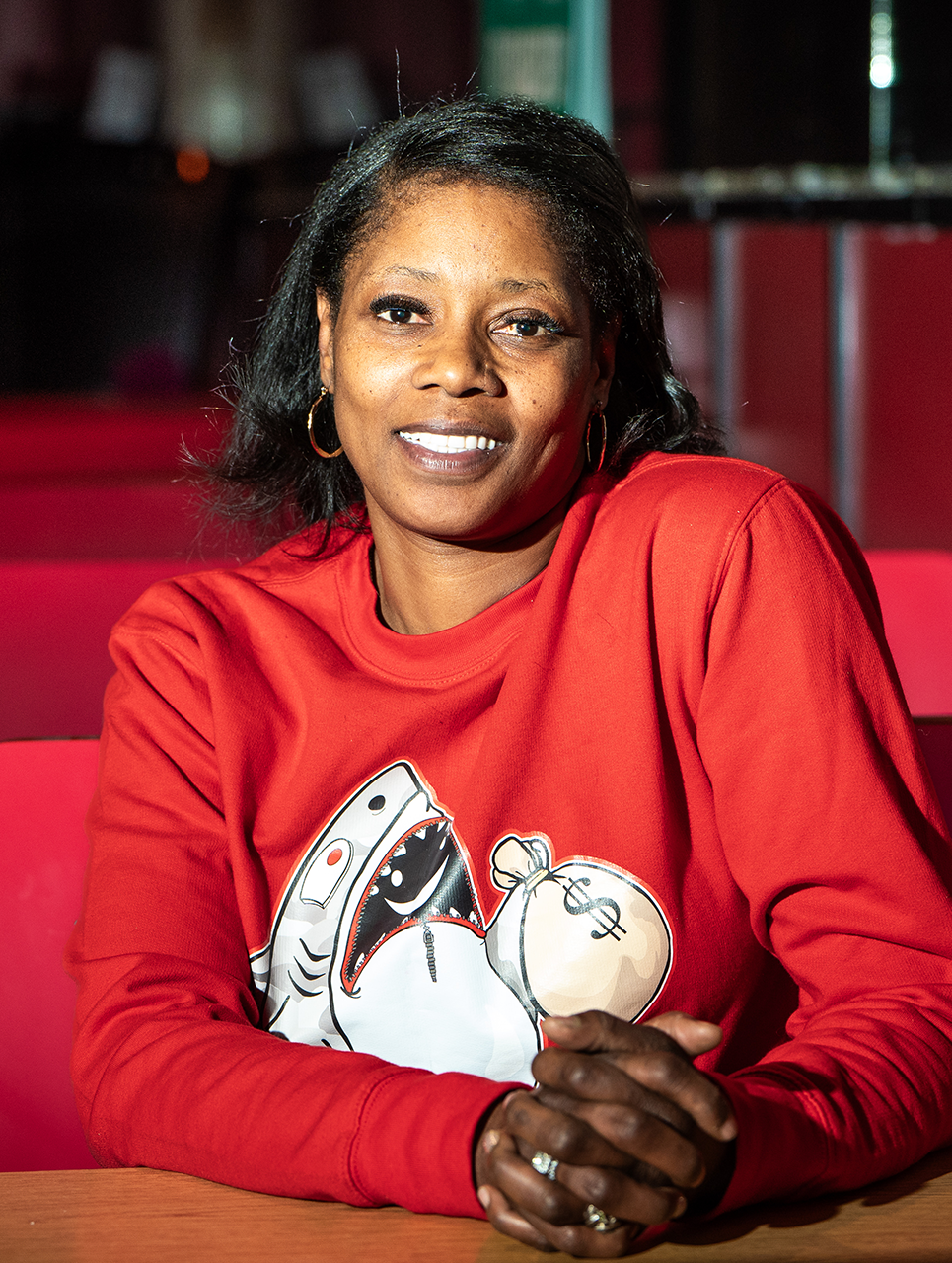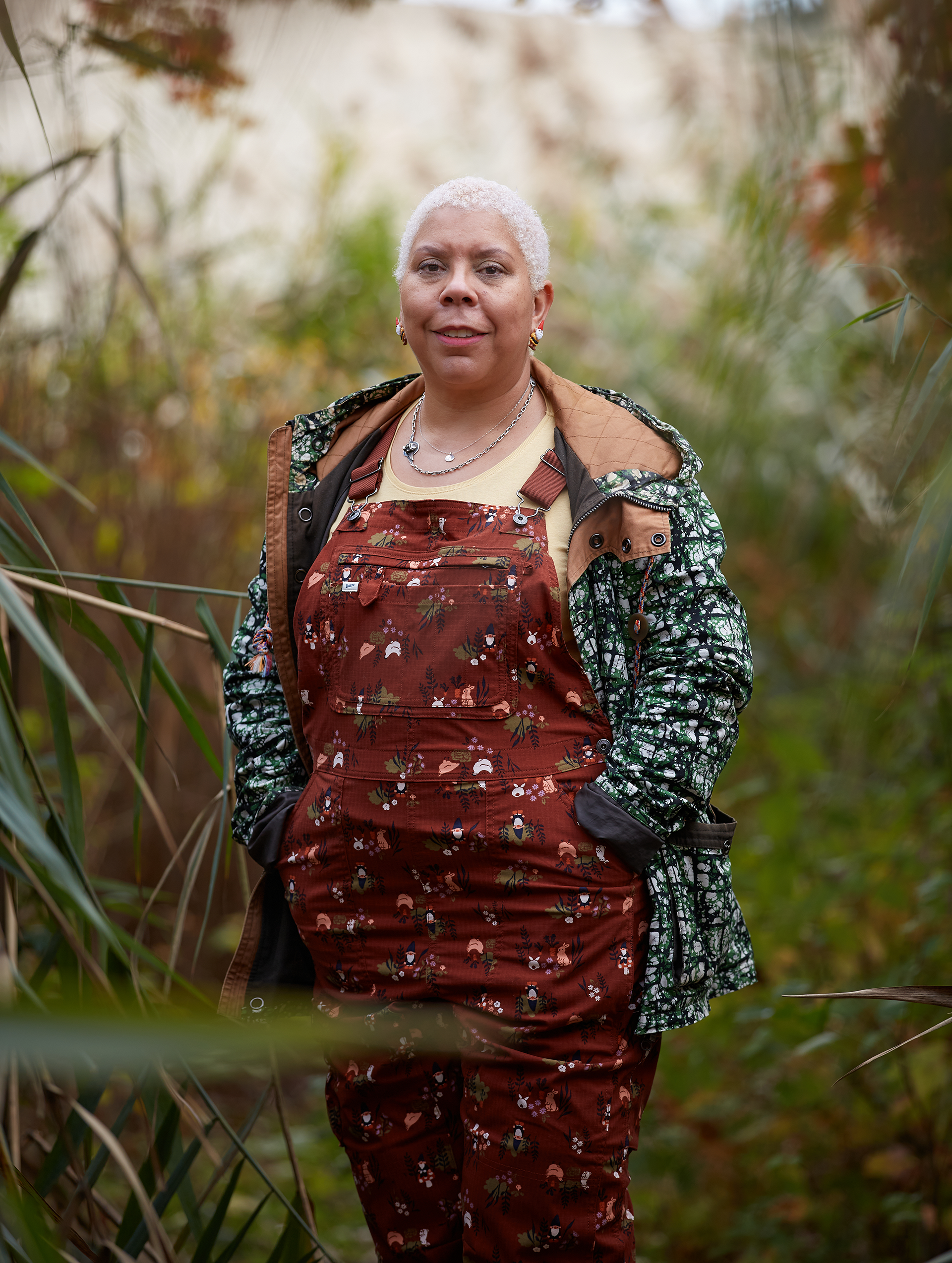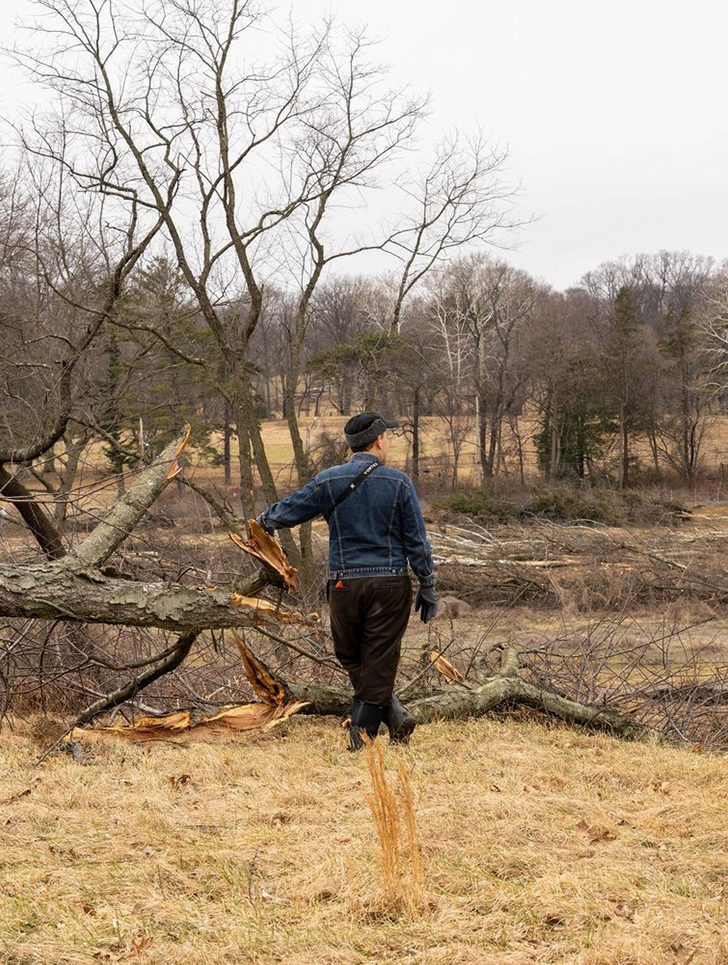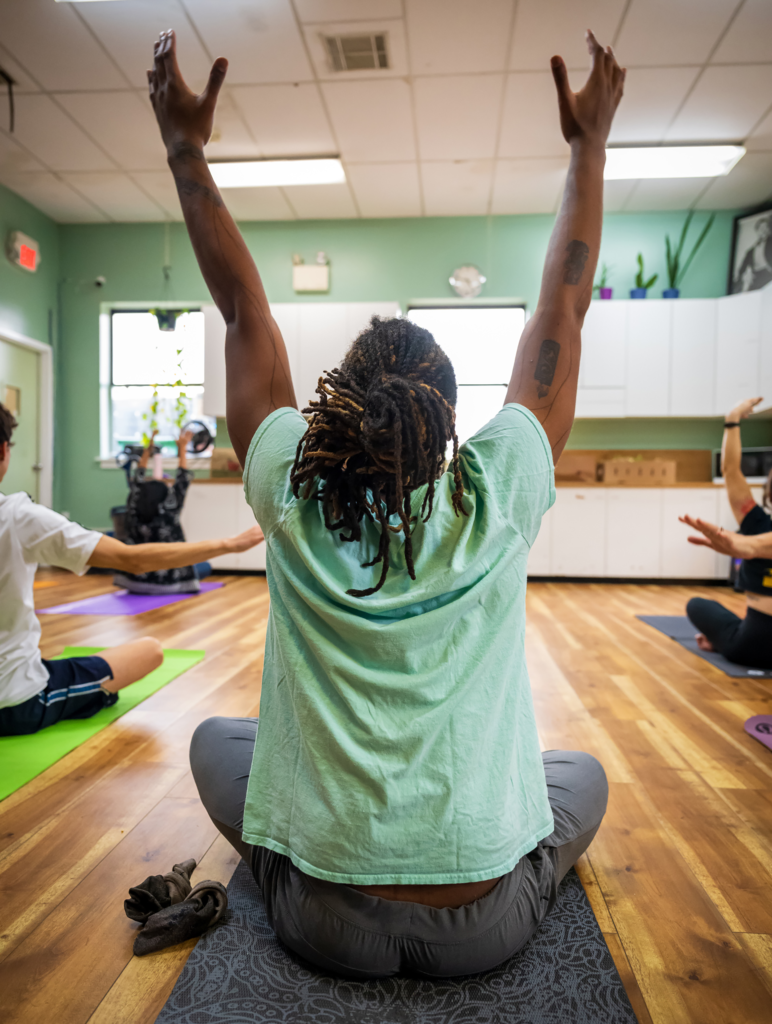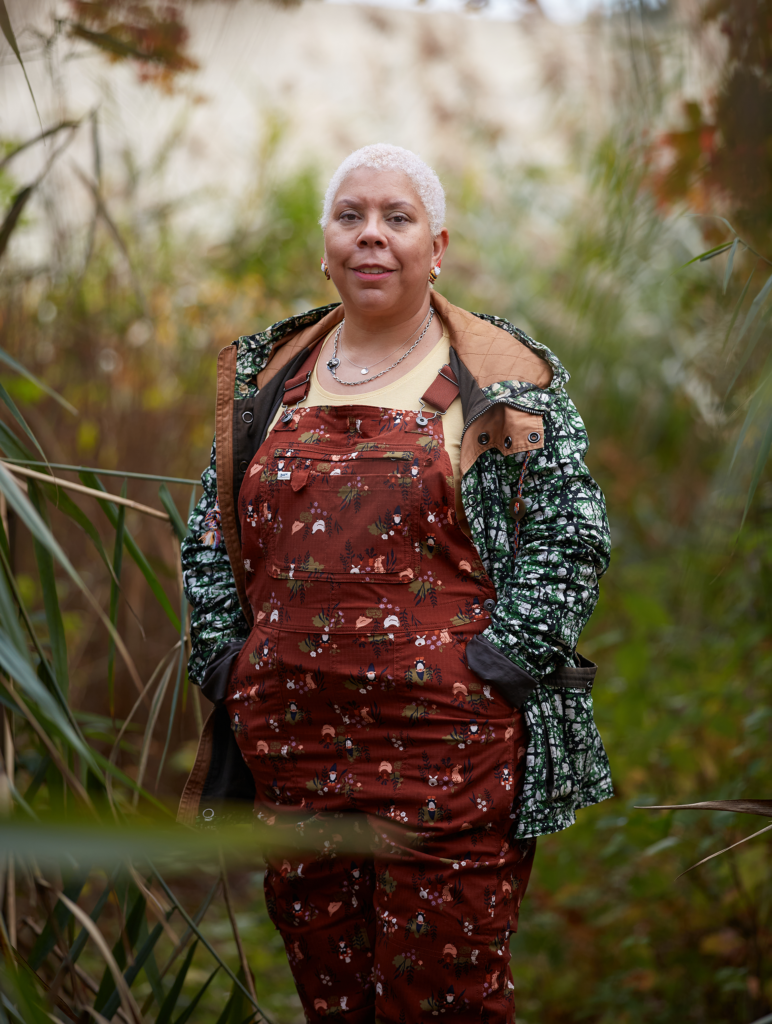The phone woke Jacqui Johnson, founder and clinical director of Sankofa Healing Studio, from a sound sleep. On the other end of the line, Tinika Hogan, recently released from prison, teetered on the brink of disaster. She was about to do something that would have gotten her kicked out of a halfway house, which could have meant landing on the street and probably shooting up heroin again.
But Hogan knew she could call on Johnson for help — they had already built a trusting relationship during the art therapy classes Johnson teaches in prison.
“Once, Jacqui had each of us make a shield and decorate it,” Hogan says, recalling a workshop. “Then she asked us what the shield was protecting. Turns out, I was protecting my heart. The workshops helped, but I had minimal coping skills when I left prison.”
During that two-hour, early-morning conversation, Johnson, a board-certified art therapist, talked Hogan through the emergency. Sankofa’s mission — to provide mental health care to Philadelphia’s Black community, especially people who’ve suffered trauma — frequently puts Johnson on the frontlines. Commitment and empathy keep her there.
“I had my own struggles,” says Johnson, raised in Southwest Philadelphia and Yeadon. “I was a young mother who wanted to be present for her children.” Johnson, who’s also an adjunct faculty member at Thomas Jefferson University Hospital, worked in accounting, catering and other positions before opening Sankofa Healing Studio in 2018.
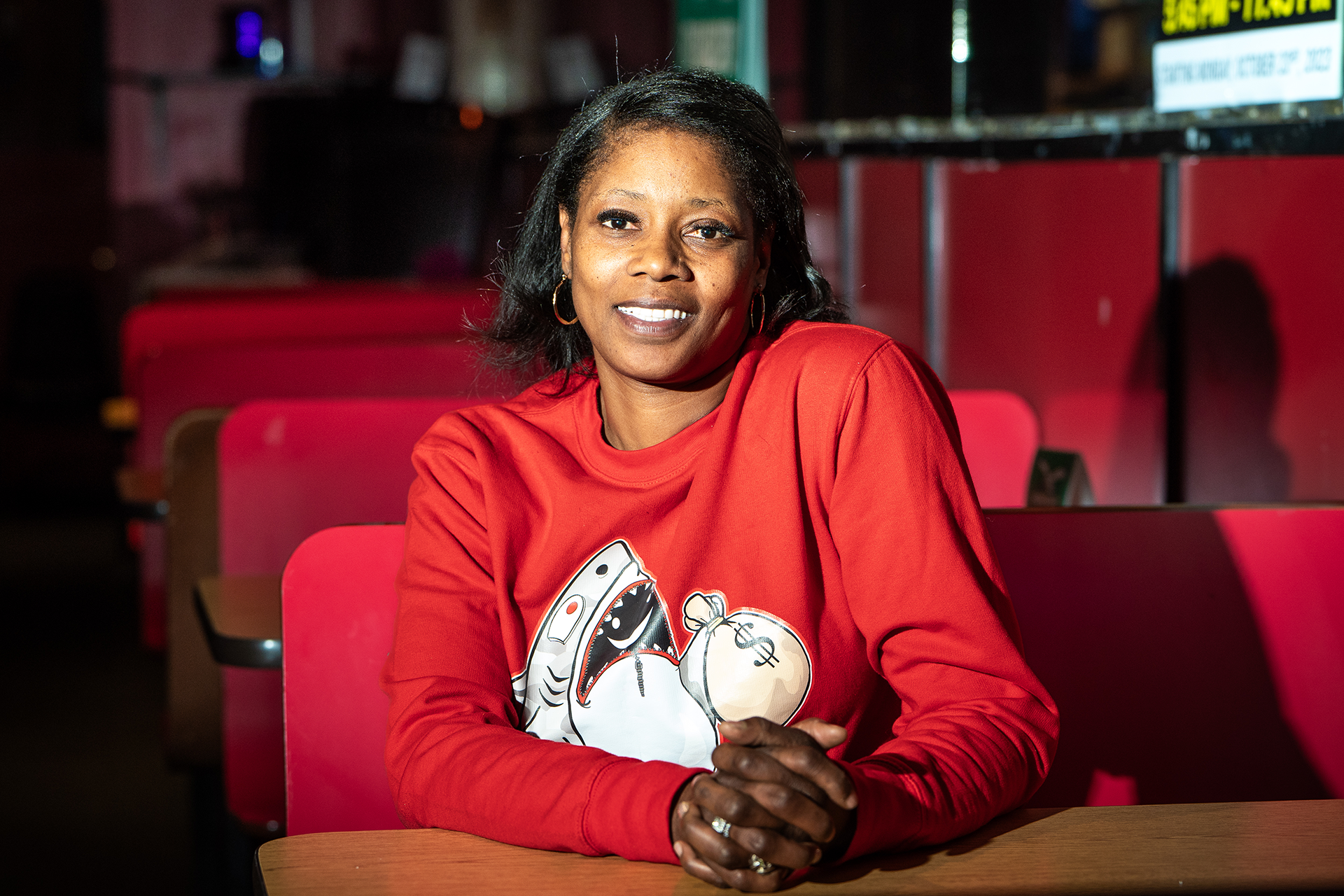
Johnson faces stiff odds in nudging some Black Philadelphians toward mental health support. Nationwide, only one in three Black adults who need mental health care receives it, according to the California office of the National Alliance on Mental Illness (NAMI). Yet 16% of Black Americans reported having a mental illness in 2018 — a figure similar to other racial and ethnic groups — according to Mental Health America, a nonprofit devoted to mental wellbeing.
Cost and stigma play a part in stopping many Black Americans from seeking treatment, according to NAMI. In addition, white providers, who may be biased, far outnumber Black mental health professionals. Nationally, 4% of psychologists and 2% of psychiatrists are Black, according to the Association of Black Psychologists.
The lack of cultural competence among some white clinicians can, and does, lead to misdiagnosis and inadequate treatment.
“People from racial and ethnic minority populations, as well as those from lower socioeconomic strata, and those … in rural communities, are less likely to have access to mental health care and more likely to receive lower quality care,” writes Joshua A. Gordon, director of the National Institute of Mental Health (NIMH), the lead federal agency for research on mental disorders. The situation fuels mistrust among Black Americans.
Johnson aims to breach those barriers. Sankofa, which serves more than 350 clients annually, has a sliding fee scale to make care more affordable. The staff also approaches potential clients on their home turf to make the idea of psychological services less daunting. Sankofa’s six therapists handed out brochures and discussed the group’s services at Germantown’s 2023 Juneteenth celebration. Johnson also gave attendees a free sound bath, which immerses participants in soothing tones from singing bowls, chimes and other instruments to promote relaxation.
Clients who come to Sankofa’s suite in the Office of Reentry Partnerships in Center City find reassurance from the moment they cross the threshold. Laurel, which uplifts the senses, or cinnamon, a grounding aroma, scent the air. Luxuriant ivy drapes the shelves. The décor includes images of attractive Black people as well as Ghanaian Adinkra symbols. The symbols, found on pottery and fabric both in the U.S. and Africa, sum up traditional wisdom. Sankofa, the Adinkra symbol which gives Johnson’s healing studio its name, shows either a stylized heart or a bird looking backward while its feet face forward. The bird conveys the importance of understanding or reclaiming the past to build a solid future.
Jacqui is culturally sensitive. She’s like the girl next door or a healing auntie. People don’t feel out of their element with her. She meets them where they are.”
— Donnell Drinks, Campaign for the Fair Sentencing of Youth
The Afrocentric vibe helps, but Johnson’s manner is the key difference, according to Donnell Drinks. Drinks, who committed a murder at 17 and served 27 years in prison, is now an anti-violence activist and the leadership development and engagement coordinator at the Campaign for the Fair Sentencing of Youth. He often refers families who have lost a loved one on the streets to Sankofa.
“Jacqui is culturally sensitive,” says Drinks. “She’s like the girl next door or a healing auntie. People don’t feel out of their element with her. She meets them where they are.”
Besides the staff’s welcoming presence, Sankofa offers several Afrocentric therapies. Kemetic yoga, said to have developed in Ancient Egypt, is much slower and more deliberate than Hatha yoga from India. Chicago native and master yoga instructor Yirser Ra Hotep brought Kemetic yoga to the U.S. some 45 years ago. Kemetic yoga has poses in common with Hatha as well as others that are unique.
Sankofa also provides Hip Hop therapy. Begun in the 1990s by the late Edgar H. Tyson, it includes the music in session with clients. If the client is having a hard time in a relationship, the therapist might play a song about a relationship gone sour to tap into the client’s emotions. The lyrics could provide the starting point for a discussion and help clients find words to express themselves. In some cases, therapists encourage clients to write songs about their feelings, a process that can lead to catharsis and sharper communication skills. Sankofa has two sound booths to record songs.
Despite Johnson’s success and some support from grants and foundations, she finds herself in a bind because Sankofa isn’t fully self-sustaining. “I’m struggling to keep the doors open, to continue programs like the perinatal mental health series and other programs, to not turn anyone away, but I’m stretched thin,” she says. (To make a donation, visit sankofahealingstudio.org)
In the years since Hogan’s frantic call to Johnson, much has happened. Hogan has joined Sankofa’s staff as community care coordinator. She accompanies Johnson at events like the Juneteenth celebration and talks with people about mental health.
“It’s my way of giving back,” Hogan says. “Jacqui’s doing important work.”

